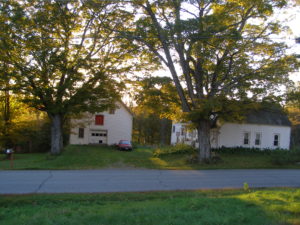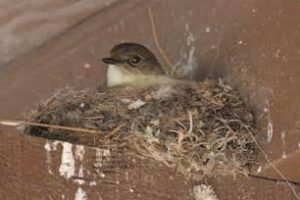by Jenny Rose | Jul 13, 2017 | A Flourishing Woman, Spirit
I first began thinking about bones 25 years ago when I was given a copy of Clarissa PInkola Estes’s book, Women Who Run With the Wolves. She writes about discovering stories of bone people in the Southwest. Bone people are old ones who collect bones in a desert between the worlds and bring dead animals and humans back to life.
Reanimation is a common creative and spiritual theme. Bones are like seeds; they are the remnants of life, and thus the base material from which to build new life. Bones are the simple starting point, the hidden scaffold and substance that survives.
Several times in my life I’ve found myself walking in a trackless emotional desert, alone, lost, frightened and injured. Old stories tell us during these times we must seek and gather our discarded, stolen and lost bones in order to call ourselves home.
Bones can be hard to see under layers of clothing, flesh, distraction and scar tissue. Perhaps that’s why it was the desert dwellers who kept bone people stories alive. The desert is clean and uncluttered, and the vast sky and sweep of land hold space for stillness and inward journeying.
Bone collecting is like treasure hunting. The first time I went bone collecting, I traveled backwards and excavated memories of my child self. I compared those memories to my adult life and began to sift for my bones, those indestructible pieces of self that have always been present, come what may, sustaining and shaping me from the beginning.
I discovered I’d thrown a lot of bones away over the years. Some I rejected because I judged them as ugly or misshapen. I refused to claim them. Others I grieved to discard, but I believed they were useless, unworthy and/or unlovable, so I dropped them and walked on without marking the spot where they lay.
The desert between the worlds has become a home to me now. The sands know the scent of the naked sole of my foot and the soaring vultures recognize my figure as I wander below them, insignificant as an ant. I’ve crawled and searched, remembered and listened for my whispered name when my missing bones feel me draw near. Some are broken and stained, incomplete fragments that no longer tell their entire story about me, but I’ve learned patience and persistence, and I save every shard and splinter. I’ve traveled miles in the desert to reclaim all those bones, groping my way through old memories, feelings and bits of conversation, sifting my bones from the garbage dump of words that did not belong to me, expectations, rules, beliefs and storm debris from storms that swept me up, though they were not mine.
Over and over, I’ve felt I’ve come to the end of everything, only to find a whole new horizon just a few steps away, at the top of a hill I didn’t know I was climbing. Each time that happens, I pause and inventory my bones. Bone collection has become an external practice as well as an internal one. I’m less and less interested in obscuring the essentials in my life with distraction, objects and complications.
This summer I have a new dimension of perception in discerning the bones of each day, each week and each season. Living simply as we do, having time to stretch out mentally, spiritually and creatively, I’m experiencing for the first time the joy of casting myself into a day with no list, no agenda, no expectations and lively curiosity.
This is, for me, a summer of wood. We’re clearing a knoll of land in order to build a cabin, thinning a grove of spindly alders and cutting an occasional small tree growing in the field which is our building site. As each tree falls, I haul it into the wall of forest surrounding the clearing. In the sunny field, the growth is waist-high, and as I drag trees through it, the sweet scent of milkweed mingles with the smell of fresh-cut wood. Wild cucumber catches at my feet, invisible in the thick growth, and I fall, and fall again, getting up hastily because, although my clothing is doused in bug repellent, rolling on the ground is a foolish exposure to ticks, not to mention rampant poison ivy.
In Maine in the summer, this kind of work is done in light-colored pants and long sleeves to protect from black flies, mosquitoes, poison ivy, nettles and the inevitable ticks. Five minutes of exertion leaves me sweating heavily under the necessary layer of clothing, breathless in the heavy, humid air.
Stepping from the field into the forest, the air cools and I’m shaded from the sun. Here, the undergrowth diminishes and mainly consists of huge ferns, but I still slip and fall, as the forest floor is littered with rotting tree debris and liberally scattered with moss-covered boulders and stones. I drag the cut trees in under the canopy so they can gradually rot and feed their living brethren and the rest of the forest system.
In the driveway, we are processing enormous piles of tree debris from trimming two live trees and from a fallen maple. The maples we trimmed provide us with welcome shade as we work. I fork wheelbarrow load after wheelbarrow load of twigs, small branches and dead leaves off the driveway and tip them over a steep hill out of sight below the house. My partner works with a chainsaw, and its snarl, along with the smell of cut wood, becomes one of this summer’s bones.

A generous neighbor loaned us his splitter, and once the maple (rock maple, which dulls chainsaws at an alarming rate) is cut into wood stove lengths, we heave the rounds onto the purring splitter, and the smell of the gas engine and sound of the relentless maul cleaving the wood becomes another of summer’s bones.
The healthy wood parts smoothly, revealing ivory, cream, and pinkish-red grain. The diseased wood breaks open, showing honeycombed defects, or crumbling, blackened rot that smells, oddly, like vomit. Heavy, thick bark peels from the wood like scabs as we work. Here in the driveway, I risk working in shorts with bare arms, but the wood is heavy and unwieldy and my legs and arms are bruised and scratched. The way I hold the rake invariably rubs a blister on my left thumb. We sweat through our clothes and I have to keep wiping my forehead and upper lip with my bare forearm and gloved wrist. Hard wood is heavy, especially when still wet, and the inside of my wrist is bruised from supporting two or three pieces as I carry firewood to the wheelbarrow, into the barn or into the cellar for stacking.
Some of this wood has been piled in the driveway for a year. As we work, we uncover an insultingly large woodchuck hole. We find a red salamander, about two inches long. My partner rescues a grass snake from a brush pile and relocates it away from the pitchfork tines. We accidentally lift away a shrew’s roof, and my partner catches the grey velvet covered creature in his gloved hand and releases it over the hill in a safe place. We brush away crickets, earwigs and worms. We split one huge round and little red ants swarm over it, hysterically collecting a broad swathe of exposed white eggs. My gloves are covered with them, and the ones who run fast crawl onto my arms and bite before I can brush them off. We set those pieces of wood aside before splitting them further to give the ants a chance to find a new nursery.
We have birdfeeders along the driveway, and the birds are the backbone of the summer days, stretching from dawn to dusk. As soon as we take a break from work, the woodpeckers gleefully swoop in for uncovered insect tidbits, and the nuthatches scurry up and down the trunks of the standing trees with their fluffy, uncoordinated offspring. The finches and sparrows return to the seed feeders from their observation posts high in the surrounding canopy.
Our resident chipmunk is so curious he can’t stay away, but as we disassemble all his best hidey holes he scolds endlessly, like a shrill and irritated metronome, glaring from under the hostas or the gap in the porch floor.

Nesting Phoebe
birdsandbloomsblog.com
Strangely, the shy phoebes like best to nest in the barn, in spite of my partner frequently playing music and our wood stacking and other noisy activities. They arrow in and out of several broken windows when the barn is shut, but on days when we’re working, they use the same door we do. Because of them, the cool barn is not only a haven of shade, but free of flies and mosquitoes. We know where the nest is, but we’re careful to ignore it and whichever motionless parent is sitting on the eggs when we happen to be present. Even the nestlings are still and silent as stone when we enter. The phoebes are currently raising their second brood, and their first set of offspring darts all over the place, hunting insects and filling the days with their distinctive cry, which gives them their name.
The bones of summer in this place mingle with my own bones. We are a bruise, a scratch, a sticky film of sweat on the skin, a sly mosquito bite. We are birds strung on the lace of trees; the private life of snake, shrew, salamander and woodchuck; the determined persistence of insects. We are tree and water and moss-covered stone. We are the smell of rotten wood, of sweat, of blossom. We are the breeze in the tree, the sound of the phoebe questing for insects, the tapping woodpecker, the hunting hawk’s cry as it circles, and the clamor of the tools we use to work on our land.
The days saunter through the season, leading me forward by the hand, and I follow, stopping every now and then to collect and record the ravishing experience we call life in words, and each word is a miniscule bone, too, each page a scatter of tiny bony seeds that wait for warmth and light, water and the soil of life and death in order to take root, grow, blossom, fruit and die, again … and again … and again.
All content on this site ©2017
Jennifer Rose
except where otherwise noted
by Jenny Rose | Jun 29, 2017 | Connection & Community, Emotional Intelligence, Shadows
I’m getting ready to turn over the manuscript of my first book to a developmental editor. Getting ready means I’m doing one final read through and combing out overused words and phrases using the search (and destroy) feature in my word processor. Over the months and years I’ve been working with my book and mastering the mechanics of writing, I’ve learned a lot about language and my own personal tics and patterns. The biggest problem I’ve found in my writing is unconsciously using passive voice.

Photo by freddie marriage on Unsplash
On the face of it, the process of cleaning up a manuscript is straightforward and occasionally mind-numbingly tedious. Looking at 4000 plus occurrences of the word ‘was’ throughout 1000 plus pages is not filled with giggles and takes a long time. I entertain myself with battleship noises every time I eliminate ‘was’, ‘were’, ‘had’, or ‘have’. I also come up with amusing similes for the process. My favorite is that editing is like combing nits out of a child’s hair.
On the plus side, this practice opens up a lot of time in which to notice my unconscious language patterns and think about how word choice reflects my choices in every other aspect of life. Editing word by word in this way is also a great habit breaker. When I write ‘had’ or ‘have’ now I notice it.
In the past, I’ve also overused ‘gently’, ‘lightly’, ‘quietly’, ‘a little’, ‘went’ (that’s a common one), and ‘softly’. As these patterns become visible to me, I ask myself with some annoyance, why not ‘fiercely’, ‘loudly’, ‘a LOT’ or ‘strode, galloped or dashed’?
I’ll tell you why not. Because I’m female and my culture has successfully taught me to make myself small. That lesson is so central and ubiquitous I’ve only recently been able to identify it and organize resistance. The message is impossible to see until you see it, and then you can’t unsee it.
Do you know the old French fairy tale of Bluebeard? A serial wife killer instructs his latest victim to refrain from opening a door in his castle, the door a particular little key opens. Then he leaves her alone with his keys (of course). In his absence, Bluebeard’s young wife and her sisters explore the castle, opening every door, and (naturally) the wife is persuaded there’s no harm in just peeking behind that last forbidden locked door. In the room they discover a row of headless bodies and a pile of heads belonging to Bluebeard’s previous wives. They exit the room (as you might imagine) and conspire to pretend they never unlocked the door. The only problem is the little key that unlocked the door begins weeping drops of blood and nothing they can do makes it stop. Bluebeard returns, discovers the infraction, and … I won’t tell you what happens, because different versions of the story end differently. This fairy tale is embedded in my own book. The point is, once some things are understood and seen, they can’t be unseen. There is no going back.
So, consider this commandment with me: Make Yourself Small.

Photo by Hailey Kean on Unsplash
- Adhere to the arbitrary cultural ideal of acceptable attractiveness. If you can’t, hate your body, torture it, starve it, distort it, color it, shave it and beat it into compliance. Make yourself conform.
- Let media, social media, experts, professionals, your favorite news channel or radio host, your religious leader, your parents, or the men in your life tell you what to believe and what to think. Don’t you bother your pretty little head trying to understand anything.
- Make your sexuality, passion and lust small. In fact, make them invisible (you slut).
- Make your intelligence nonthreatening.
- Tame your creativity.
- Don’t ask questions. Don’t search for clarity and truth. Don’t do your own research. Restrain your curiosity.
- If you must have needs, make them as infinitesimal as possible. Your needs are dust in the wind compared to the convenience, habits and preferences of others.
- Be silent! You are disqualified from having an opinion. Don’t tell your truth. Others are speaking. Censor your voice. Don’t make anyone uncomfortable.
- Capture, restrain, cage, shackle, chain and abandon your dreams. Who do you think you are?
- Deny, belittle, smother and minimize your feelings. Control yourself!
- Shame on you! Cringe, cower, hide your head! You’re bad and wrong!
- Be self-contained. Be self-sufficient. Don’t take up too much space. Move lightly. Don’t spend too much money. Don’t be too dramatic. Don’t be too sensitive. Don’t order dessert. Don’t attract attention. Don’t breathe too much air. MAKE YOURSELF SMALL!
You get the idea, I’m sure. This list goes on and on. The message is everywhere, and we’re all affected. It cuts across social, racial, economic, political and gender divides. Failure to toe the line, whatever that line is, results in harsh social and professional consequences, up to and including death. Show me a headline and I’ll pick out this theme. I trip over it a dozen times a day in my own life. Spend five minutes on Facebook reading any thread on any subject and you’ll find this underlying message.

Photo by James Pond on Unsplash
The surrounding cultural mandate to make ourselves small is toxic, but it’s not the heart of the problem. The heart of the problem is our internalization of the mandate before we’re even aware of it, and then it becomes so woven into the fabric of our experience we no longer discern it.
Ironically, stubbornly pursuing my passion for writing and my determination to be bigger is what reveals to me the outlines of my own self-sabotage. My habit of making myself small has trickled all the way down to the words I choose. Editing my manuscript has become editing my thoughts and choices, and noticing the words I write and think in helps me notice my feelings.
My feelings contain a lot of fury and a lot of rebellion, far more than I was aware of when I created this blog last summer. Minor friction with my partner about planning a day or how we utilize counter space taps into a deep vein of lifelong rage and pain about allowing and participating in my own repression and oppression. I have systematically colluded in my own erasure. I’ve agreed to make myself small. I’ve agreed to abdicate my power.
No more. I opened Bluebeard’s chamber, and saw what it contained. The key that unlocked the door was writing, and I’m deleting all the blood-stained words that make my art small. If I fail as a writer, I’m not going to do it softly, gently, lightly or a little. I’m going to do it thunderously, monumentally and profoundly.
It’s time to make myself big.

Photo by Stephen Leonardi on Unsplash
All content on this site ©2017
Jennifer Rose
except where otherwise noted
by Jenny Rose | Apr 13, 2017 | Emotional Intelligence, Fear, Feelings
Last week I came down the steep stairs from my little attic aerie, sat in a chair in the living room and cried while I asked my partner if he thought I would ever have a less effortful experience of life.
It’s not that anything was really wrong. What I was feeling was an old, familiar feeling of trying to manage my life and myself as efficiently as possible and feeling worn out and unsuccessful.

Photo by Bradley Wentzel on Unsplash
Trying. Manage. Efficiently. What am I, a machine?
I was tired that evening, and worried about diminished workflow and subsequent diminished paycheck. I wasn’t seeing a way out of my work/income situation, which is a place I’ve been in for several years.
One of the things I did last week during a work shift devoid of work was join She Writes, an online community for, obviously, women writers. I’d been procrastinating about doing so for a long time.
For years, I’ve been trying to find a writing community, both locally and online. I’ve joined a professional local organization, but their programs are rarely offered up here in Central Maine, as Portland is their headquarters. I’ve tried, unsuccessfully, to find beta readers for my first book. I put up an invitation to start a writer’s group at the local library and didn’t get a single call. I tried a give and take partnership with another writer so we could read one another’s work and provide feedback, but my partner had other priorities and needed to drop out.
And, of course, I need to work for that paycheck, so my time and energy are largely gobbled up by my financial needs rather than the joyful work of my life. This produces a chronic background tension that grinds away at my soul.
Anyway, I decided the time had come and I was ready to join She Writes and see what possibilities might open up through that community. I had to apply to join.
I knew they wouldn’t take me.
They accepted me (probably some kind of mistake) and the day after I sat in the chair and cried, I had another shift with no work and began exploring She Writes. I came across a blog post titled “The Only Reason to do Anything is Love,” by Bella Mahaya Carter, and had an epiphany.
Engaging with life from a place of love rather than fear is not a new idea for me, or probably for anyone reading this. It’s the kind of thing we hear and read all the time. I would have said I do that. It’s always my intention to show up in the world with love, which is to say kindness, compassion and respect.
The wording of Carter’s post, however, indicates motivation, an internal thing, not external action. Make choices with love, not fear. Decide what to do based on love. Do nothing for fear.
Right, I thought. I treat others and myself well. Of course.
Why?
I treat others well because I think it’s effective and I’m afraid of violence, hatefulness, rejection and just plain crazy.
I treat myself well because I’m afraid to be unhealthy, unable to earn a living and/or unable to be independent.

Photo by Milada Vigerova on Unsplash
It’s all for fear. It’s not for love.
Furthermore, treating myself well doesn’t equal loving myself. I caretake my physical form like a good property manager takes care of a rental. I exercise, eat well, brush my teeth, wash my body and take care of injuries.
What I think about myself is that I disappointed my parents, drove my brother nuts (not literally!), failed two marriages and made unforgiveable mistakes as a parent. I think I’ve never made a successful career or had a good enough job. I think I’m ridiculously hard to live with. I think I eat too much, use too much hot water in the shower, like obnoxious music, try too hard and am too sensitive. I think I’m unattractive and few people want to hug or touch me. I think I’ve spent years writing a 300,000-word book that, for all I know, has less value in the world than a roll of cheap toilet paper. On sale.
Those are some of the things I’m conscious of. When I look at my fear-based choice making, it appears I also think if I don’t hold my own feet to the fire at all times I’ll become a lazy, irresponsible, selfish slacker; demanding, mean, dishonest and greedy.
Carter’s post made me realize I could hardly think of a choice, any choice, whether important or mundane, that I haven’t made based on some kind of fear. Ever. From earliest memory.
The greatest motivator in my life is and has always been fear.
Not only that, but I’ve created a whole pantheon of idols I obsessively and ceaselessly worship in order to avoid the vengeful, punitive God I’ve made out of fear. I make daily bloody and brutal sacrifices of time, energy and life to appease them, but insatiable fear just gets more and more powerful. Here are some of the idols:
I read that post on Friday. There and then I decided to start making choices based on loving and believing in myself rather than fear of consequences and see what happened.
Without leaving the chair, I asked myself what the hell I was doing messing around with a job that wasn’t meeting my needs and I was unhappy in.
On Saturday I applied and tested for a job as an independent contractor to do transcription for an online company.
On Sunday I applied and tested for a job as an independent contractor to do transcription for a second online company and was hired on the spot. I also wrote the publisher of She Writes Press and asked for help with the next step for my book manuscript.
On Monday, when I ran out of work, I began getting qualified (via testing) to do various kinds of transcription through my new job and looked up the resignation process from my current medical transcription job.
Yesterday the second online business hired me.
This morning She Writes Press wrote me back with support, suggestions, a recommended professional who might read the manuscript, and what it would cost.
The fear is not gone. In fact, it’s louder than ever because I’m challenging it on so many fronts at once. The difference is I’m not standing nose to nose with it right now. Playing with the new toy of making choices based on what’s loving for myself gives me another option, which means now I can make a real choice.
Fear is not a bad feeling. We need it to survive. It’s just that mine has grown bloated and swollen on all the power I’ve given it over the years. The bigger it gets, the more space it takes. At this point I’ve become its thing. It thinks it can do as it likes with me.
It’s wrong.
I’ve had a belly full of life based on doing things out of fear. It’s exhausting, demoralizing, joyless and hag-ridden. It doesn’t work well and I’m sick of it. When I think about it rationally, I know I don’t need to beat myself with a stick through every day for fear I’ll become lazy, selfish, etc., etc. If I was going to turn into any of those things I would have done it long ago.
How would it be if I used regard for myself as a motivator and refused to do or not do out of fear? What might a life based on doing things out of thinking well of myself look like? What if I stopped giving anything to fear?
The funny thing is life looks much the same. The difference is largely in the outwardly invisible motivation behind my choices. Am I going to relax with music or a video and stretch because that’s the right and responsible way to treat my tiresome physical needs after a long day sitting in which I earned inadequate money, or am I going to do it because I love the way it feels after a tiring day in which I worked hard, whether I earned money or not?
Life is crazy right now. Everything feels like it’s in transition. I hardly know what to concentrate on in any given moment, there’s so much on the table. Even so, now when I run out of energy in the afternoon I spend a few minutes writhing between making a choice between demanding more from myself out of fear or doing something pleasurable and relaxing. So far, every day I’ve managed to choose rest and relaxation after another wild day.
It appears I’ve begun a new practice. I didn’t know that evening I sat in the chair and cried I was standing on an important threshold. I didn’t know by the end of the week I’d have not one but two new jobs. I didn’t know I was going to finally get serious about putting my manuscript into a professional’s hands and risk failure and rejection. I didn’t know in just a couple of days I was going to begin making a habit out of rolling out of bed and stepping into the day’s embrace with curiosity and a resolve to think well of myself as I navigate, rather than wondering fearfully what would happen next and whether I would manage it adequately.
So far, so good.
Nothing more for fear.

Photo by Stephen Leonardi on Unsplash
All content on this site ©2017
Jennifer Rose
except where otherwise noted
by Jenny Rose | Feb 16, 2017 | Contribution, Emotional Intelligence
I read a post on resistance lately from one of my favorite writers, Sharon Blackie, and was deeply comforted. She reminded me we all have something to offer the world. Ever since reading it, I’ve been thinking about what resistance means to me, and the different forms it takes in my life.
Then, last week, Elizabeth Warren was silenced on the Senate floor (but not elsewhere!), and Mitch McConnell made history with his justification. “She had appeared to violate the rule. She was warned. She was given an explanation. Nevertheless, she persisted.“
A violated rule. Heaven help us. Disobedience. Failure to comply.
Resistance and persistence. What an unholy pair.
This morning I sat down to write this post, as is my habit on Wednesday morning before I go swimming, but I couldn’t get anywhere with it. All I could think about was this quote, and how it makes me feel, and how absolutely persistent resistance is! After a few minutes the words stopped making any sense at all.

Photo by Todd Quackenbush on Unsplash
So, I went swimming. In the pool, I began the rhythm of stroke and breath, felt myself held by the water as though it loved me, and entered into the ebb and flow of my thoughts and feelings, not struggling for wisdom, focus or creativity, not trying to problem solve, just being.
“She had appeared to violate the rule. She was warned. She was given an explanation. Nevertheless, she persisted.“
I thought about how hard I’ve tried to earn love all my life with my silence, and how it hasn’t worked, and how now, in my fifties, I feel overwhelmed with grief because I wanted my family to be proud of me. I wanted to be allowed to love them and feel loved and supported in return. I wanted to get held and reassured. I never wanted to be the boat-rocker, the problem child, the difficult one, the dramatic one, the disappointment. I never wanted to drain any resource, need anything, be any kind of burden or cause any harm. I wanted to be a joyful thing, not an embarrassment and a failure.
“She was warned. She was given an explanation. Nevertheless, she persisted.“
I thought of the persistence of things. Life, women, children, longing, desire, dreams, cycles and seasons, death, black flies, weeds. The persistence of grief. The persistence of loss. The persistence of love, in spite of everything, even if never returned or expressed.
I cried in the pool, as I swam one lap after another. For all you non swimmers out there, having a good cry while wearing swim goggles makes the goggles fog up, in addition to filling with salt water. On the plus side, you can make as much noise as you like underwater, and no one will ever hear you. Also, having a wet face and red eyes at the swimming pool isn’t remarkable.
I needed to cry. I needed to swim. I paused every two laps and cleaned out my goggles.
It came to me then that this is my resistance.

Photo by Travis Bozeman on Unsplash
This. My tearful swim and fogged-up goggles. My blog. This messy, painful, not-pulled-together, nonheroic experience I call my life is my resistance, and I persist in it. I cannot beat, starve or mutilate myself into someone else, not even to get loved. Believe me, I’ve tried. In the end, though, the half-wild thing I am still looks out of my eyes and lurks in my heart. Perhaps not attractive or worthy of love, but there. Wanting. Alive. Persistent.
Some people think power is the ability to shut someone up, but power and force aren’t the same thing at all. The ability to throw acid on someone, to fire someone from his/her job, to rape, to behead, to kill someone’s family, to detain someone, to torture, to murder — that’s not strength. That’s not real power. Silencing others doesn’t mean we’ve won, or that anything has changed. All it means is, for the moment, we’re not forced to hear something we’re afraid of, but the words and resistance are still there. They’ll be spoken again, in music, in writing, in action, on YouTube. Someone else will pick them up and say them, and someone after that, and someone after that.
“Nevertheless, she persisted.”
At the end of the day, the only power we have in life is to do what we can with what we have, and the one thing we all have is ourselves. The self is a persistent thing.
So much is needed in the world. So much love, so much healing, so much courage and forgiveness. We need heroes and leaders, activists and rebels. We need organizers and people to march, hold placards, make phone calls and show up in front of the cameras with hard questions.
My gifts and abilities are not these.

Photo by Miranda Wipperfurth on Unsplash
But we also need people who nourish roots. We need people who whisper to trees. We need people who gather bones and seeds. We need storytellers and lovers, dancers and shamans, intuitives and creatives. We need people who can collaborate, share power and shape self-sustaining community that’s not based on capitalism. We need people who can include, connect, learn and grow. We need people who can hold another human being in their arms while they weep.
We need persistent people who know how to resist a diseased overculture and endure tribal shaming, abuse, tyranny, injustice, poverty and loss. We need people who think for themselves, who are persistently curious, who aren’t afraid to break someone else’s rules. We need passionate people who know how to feel deeply.
These are things I do.
These are things I am.
So, today, my resistance consists of tears and laps, this week’s post, and being persistently present in my quiet, unimportant, ordinary life. My resistance is my persistent longings and desires, my refusal to give up and be silent. I don’t resist because anybody cares or notices, or because I think I can make a damn bit of difference.
I do it because that’s what I do and this is how it looks.
“Nevertheless, she persisted.”
Yes, indeed.

Photo by Tim Gouw on Unsplash
All content on this site ©2017
Jennifer Rose
except where otherwise noted












